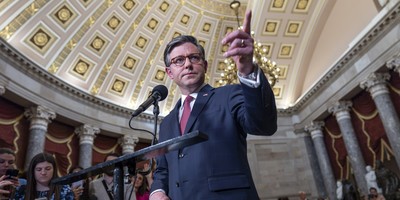Afghanistan: Update. The head of the committee arranging for the swearing-in of the president-elect Ashraf Ghani Ahmadzai announced that the ceremony is scheduled for 29 September.
The Taliban announced that they rejected the election process, which it described as fake and shameful. They announced that they will continue the jihad.
Iraq: Prime Minster Haider Al-Abadi made a number of changes to the top military leadership in response to the latest military disaster. He abolished the Office of Commander-in-Chief, created and occupied by his predecessor al-Maliki, and ordered the retirement of General Abboud Qanbar, acting secretary-general of the Ministry of Defense, and General Ali Ghaidan, former commander of Iraq's land forces.
Al-Abadi is under pressure to do something to improve military leadership because fighters from the Islamic State of Iraq and the Levant (ISIL) overran Saqlawiyah military base, 30 miles west of Baghdad. Only 200 men from a garrison of 1,000 escaped. ISIL paraded some of the captives in public in Fallujah, which has been in ISIL control since January. The escapees blamed the losses on poor senior leadership. They also said the garrison lacked adequate food, water and ammunition. Abadi ordered the arrest of two military officers who were in command at Saqlawiyah.
Comment: The loss of Saqlawiyah base is the first military disaster of Abadi's brief tenure as prime minister and it serves as a bad portent. Abadi's primary concern is to make the elected government work, including finding "consensus candidates" for the posts of interior and defense ministers, which remain unfilled.
ISIL seized more Iraqi territory and humiliated the Iraqi army before Abadi completed his cabinet. A functioning political coalition in Baghdad has no direct relationship to the ability of the armed forces to defend Baghdad. The politicians' behavior does not convey that they appreciate the gravity of Iraq's security situation. That judgment helps explain the attitude of the Sunni tribes whose intervention on behalf of the government might help turn back the ISIL fighters. They remain on the sidelines. Time and land are not on the side of the politicians in Baghdad, assuming they want Iraq to remain a united country..
Recommended
Turkey: Turkish media reported that on 2 October the parliament will discuss a motion to extend by a year a mandate that authorizes the government to commit Turkish troops into Syria and Iraq if needed. Government officials indicated that the new authorization also will be broader than the one which expires October.
Turkish political analysts said the new authorization will enable the government to deal with the humanitarian/refugee crisis on the southern border as well as with the national security crisis. The government is considering several options, one of which would be the creation of buffer zones along the border.
Comment: As a result of ISIL's emergence and its brutal practices, border control is strained, with refugees entering southern Turkey and Kurdish and other fighters exiting to combat ISIL. President Erdogan seems reluctant to reinforce the border much and does not want to be drawn into the Syria fighting. He might have no choice if security continues to deteriorate, as a ripple effect of US-led Coalition operations. The creation of a buffer zone is likely, to keep Syrian Kurds out of Turkey.
Russia-Ukraine: Russian President Putin sent a letter to Ukrainian President Poroshenko warning the Ukraine to not implement any trade provisions of the Ukraine's association agreement with the European Union (EU).
Putin allegedly wrote, "We still believe that only systemic adjustments of the Association Agreement, which take into account the full range of risks to Russian-Ukrainian economic ties and to the whole Russian economy, will allow us to retain existing trade and economic cooperation between the Russian Federation and Ukraine." He threatened unspecified economic retaliation.
Comment: In three-way negotiations among Russia, Ukraine and the European Union, the Russians professed concern about the loss of the Ukrainian market owing to imports from the EU, They threatened to end trade preferences with Ukraine, unless the EU agreed to delay until 2015 some provisions of the association agreement, such as dropping tariffs. The parties agreed to a delay on 12 September.
Having obtained an initial concession, Russian authorities are pressing for more. In the struggle between Russia and the EU, economics is politics. Thus the Russians are moving to ensure Russia has as at least as much access to Ukraine as the EU.
Ukraine: Ukrainian forces and the eastern Ukrainian rebels have repositioned their artillery in compliance with the 5 September ceasefire agreement. Some exchanges of fire continue.
NATO officials also reported that Russia has withdrawn forces that had operated in eastern Ukraine.
Comment: The security situation appears to be improving slowly, but the ceasefire is fragile. Fighting groups on both sides are dissatisfied with the ceasefire agreement.
Political. Eastern Ukrainian rebel leaders said today that they will hold elections in Luhansk and Donetsk on 2 November. This date is more than a month earlier than the self-rule elections that Kyiv had announced. The rebels intend to elect a "supreme soviet" and government leaders.
Comment: The rebel negotiators approved the 5 September ceasefire plan, but some rebels considered that an act of betrayal of their independence declaration last spring. The 2 November election date is an act of defiance against Kyiv and a challenge. Political differences are far from settled.
End of NightWatch
###
NightWatch is brought to readers of Townhall Finance by Kforce Government Solutions, Inc. (KGS), a leader in government problem-solving, Data Confidence® and intelligence. Views and opinions expressed in NightWatch are solely those of the author, and do not necessarily represent those of KGS, its management, or affiliates.
A Member of AFCEA International

























Join the conversation as a VIP Member